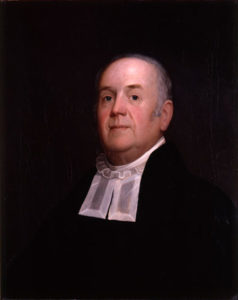FOR A CITY of modest size with a smallish harbor, Salem, Massachusetts, in the late 18th century was the site of an extraordinary confluence of men and opportunity as entrepreneurs, shipbuilders, captains, and merchants made it a center of international trade. Every young man’s dream, if he lived in Salem and had connections, was to go to sea and make his fortune.
One such man was John Gibaut (1767–1805), who, in 1786, at the age of nineteen, while still enrolled at Harvard College, went on his first voyage. He quickly rose to be captain of his own ships, but after thirteen years at sea he retired to a farm in Gloucester, where he lived until his death at age 38. On the surface, it was an unremarkable life, not unlike that of hundreds of men along the Eastern seaboard at this time—but with a twist.

Gibaut’s mentor as a youth was the renowned minister, scholar, and columnist Rev. William Bentley (1759–1819), a child of the Enlightenment, an early Unitarian of great erudition who wrote a weekly column for the Salem Gazette that was read well beyond Salem and New England. (Thomas Jefferson asked Bentley to be president of the University of Virginia, but the latter declined.) Bentley’s diaries constitute a record of life in Salem between 1784 and 1814. The fact that Gibaut came to his attention, first as protégé and later as a close friend and companion—plus his artfully revealing references to Gibaut’s unusual “habits”—is thus of some note.
Let me quote Bentley at length on the topic of his friend,
William R. Sargent is an independent curator and former curator of Asian Export Art at the Peabody Essex Museum.






